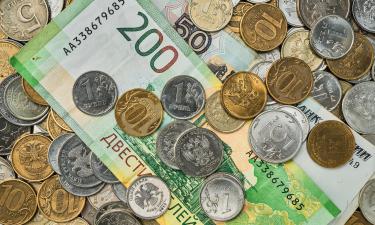Argentina: Puzzled Society Waits for Sunday Elections
A few hours before the crucial voting, five candidates still stand chances to be in the runoff and confusion reigns
Argentineans go to the polls on Sunday to elect a President for the next four years. A few hours before the crucial voting, five candidates still stand chances to be in the runoff and confusion reigns
The political crisis that followed December 2001 turmoil has atomized the electorate as well as broke into pieces Argentina's traditional two-party system. Today, a fragmented society strained by nation's worst-ever financial crisis, has to elect a new president amid a fragmented scenario. Never in the history of this South American country, five candidates reached the last week of an election campaign standing chances to win. Therefore, opinion consultants are reluctant to forecast results and the society gets more and more confused.
Notwithstanding, according to the last researches, there is only one thing clear: a runoff, scheduled for May 18, will be necessary to elect the new president. "This is the first time in Argentina's history, in which a runoff will take place", Jorge Matzkin, Minister of Interior tells PRAVDA.Ru. Despite allegations about a possibility of fraud during and after the voting, Matzkin trusts elections will run smoothly. "There will be no problems because Argentina needs to have clear elections to come out from the crisis", he says.
But going into candidates and opinion polls, it looks like only three of the top five could obtain enough supports to be in the runoff. The latest polls published by the local media show Carlos Menem, ex-president of Argentina between 1989 and 1999, at the head of the preferences with 21% of voters. Two points behind comes the Santa Cruz Gov. Nestor Kirchner and Ricardo Lopez Murphy, an economist and former member of the cabinet of Fernando De la Rua's ousted government.
It is difficult to explain why Carlos Menem is running for president again. The 72-year old peronist leader headed a privatization process during the nineties. His greatest goal during his stay in office was the economic stability backed by the parity of the peso to the dollar. However, such economic plan, masterminded by his Minister of Economy, Domingo Cavallo, made local industry lose competitiveness and, therefore, unemployment reached unprecedented levels. Also, Menem was accused of being liable for a series of corruption scandals, including money laundering and weapons trafficking. Actually, he spent six month under house arrest due to these allegations in 2001.
However, analysts believe Menem has strange influence over the population. In fact, many of his followers believe that he can make miracles and take Argentina out of the deep social crisis in no time. His supporters come from an alliance of the upper classes linked to the financial business -very much benefited while he was in power- and indigents that trust in his charisma.
"I will vote for Menem, because he is the only one that can govern this country", says Patricio De Georgis, a 33-year old specialist in Political Sciences. When asked about corruption scandals, he says he is aware of them but hopes they won't take place again.
As per Nestor Kirchner, he is the Governor of Santa Cruz Province, down South in Patagonia region. From the beginning, he was against Menem's policies and denounced misbehaviors of Menem's officials. "I am different: I did not rob the country; I did not become a rich man and do not have the kind of collaborators Menem has. They (Menem and his collaborators) are a shame for the country", said Kirchner to PRAVDA.Ru.
A centrist, Kirchner's program is a mixture of neo-Keynesianism in economics, independent line on foreign affairs and contention of the social conflict through social care policies. Kirchner, a lawyer from a German family, will follow the guidelines of President Duhalde, who backs him to defeat Menem. "We have to recover the values of this society; they have been broken by the tolerance on those who filled their pockets at the expense of people's suffering", Kirchner told PRAVDA.Ru when asked about a possible victory of Menem on Sunday. His supporters are mainly in the middle class, but also have to be found among the new poor, frustrated by Menem's neo-liberal policies.
Without any doubt, Lopez Murphy's emergence has shaken up the race. He was not taken into account by most of the analysts, but is now fighting for a place in the runoff. His conservative coalition, Federal Movement Recrear, is a new political formation, which includes former members of the Radical Party -UCR- and right-wing parties of the provinces. Analysts believe that he is a "big city" phenomenon, as he has no apparatus to be present all along the country.
Lopez Murphy is seen as serious economist, but his connections with bankers, businessmen and the international financial market, make him attractive only for the upper classes. As Minister of Economy under Fernando De la Rua in 2001, Lopez Murphy went ahead with an austerity program that could not be implemented due to the strong opposition of the population sick of budget cuttings. To climb up opinion polls, Lopez Murphy shifted to a softer speech: "I'm a candidate who doesn't make promises," he said in an interview with The Associated Press. "Today, there is no room for promises. I'm pledging to take charge of an enormous rebuilding effort where we will have to start over from scratch."
Behind the first three, but still with chances to win, come Adolfo Rodriguez Saa and Elisa Carrio. Populist, Adolfo Rodriguez Saa is a peronist Governor that heads a national and popular movement, very much connected to the traditional peronist ideas. He calls for the popular union under direct slogans appealing to Argentine nationalism.
Elisa Carrio, in turn, is the only candidate who offers a center-left program, very European style. This congresswoman is very well reputed as an intellectual with strong convictions and an honest background. During the nineties, Elisa Carrio denounced a money laundering operation, in which the then-president Carlos Menem was involved, as well as very important international banks and financial institutions. She enjoys the best public image among all candidates, but lacks a strong structure behind and, therefore, people do not believe she could govern a country like Argentina, analysts say.
"I am a hard woman: neither powerful politicians, nor rich businessman can 'normalize' me", she told PRAVDA.Ru recently. "If we win the race for presidency, a new process of change and political renovation will take place in Argentina", says the leader of the center-left coalition, Argentineans for a Republic of Equals.
Who will win? It is not clear, yet. However, nobody doubts 2003 elections are crucial for the fate of a nation once rich, but now overwhelmed by poverty.
Subscribe to Pravda.Ru Telegram channel, Facebook, RSS!





